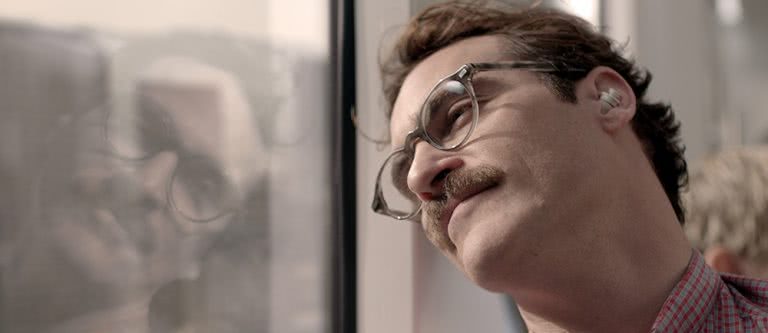In Her, Joaquin Phoenix plays Theodore Twombly, a lonely down-and-out writer who makes a living out of penning love letters for those who find it hard to express their feelings. When he upgrades his computer, a friendship blossoms with Samantha – the voice of his operating system. As Theodore shows Samantha more of his world, a fully-fledged romance blooms between them.
Rather than pushing the quirk, director Spike Jonze handles the relationship matter-of-factly. As Theo and his OS share their worlds, it becomes apparent that the central issue is with defying cross-cultural boundaries, rather than the fact that a human is in love with an inanimate object. Interestingly enough, however, as the film progresses, said inter-digital romance carries particular relevance to contemporary film-goers as Theo quickly discovers he’s not alone in loving a smartphone.
Naturalism might be slightly off track for Jonze, but the subject matter is oddball enough to remind you that it’s his film. The film’s mis en scene successfully creates a world that feels familiar, yet remains in the not-too-distant-future. Her’s costume design also contributes to the sense that characters are not quite a product of our time. Hipster fashion, pastel colours and high waisted tweed pant-sporting individuals hint that the film could be set in the year 2020.
That aside, Jonze’s central idea – that modern technology provides new emotional paths to navigate – is very much attached to the now. Her questions everything from online dating, the complex issues surrounding disruption and progression, and the cult of loneliness. The point of it all? With the saturated data environments of today and the ability to create the most intelligent companions, the future may still be a very lonely place.
4/5 stars
Her is in cinemas now.


































